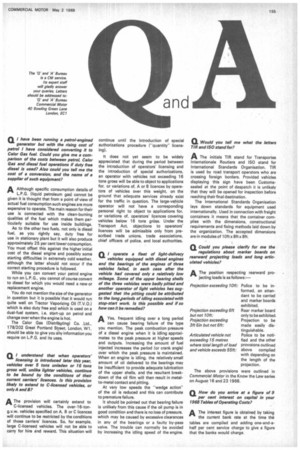Ct I operate a fleet of light-delivery
Page 157

If you've noticed an error in this article please click here to report it so we can fix it.
vehicles equipped with diesel engines and the bearings of the engines of three vehicles failed, in each case after the vehicle had covered only a relatively low mileage. Some of the upper bearing shells of the three vehicles were badly pitted and another operator of light vehicles has suggested that the pitting could be attributed to the long periods of idling associated with stop-start work. Is this possible and if so how can it be remedied?
AYes, frequent idling over a long period
can cause bearing failure of the type you mention. The peak combustion pressure of a diesel engine when it is idling approximates to the peak pressure at higher speeds and outputs. Increasing the amount of fuel injected increases the period (or crank angle) over which the peak pressure is maintained. When an engine is idling, the relatively small amount of oil delivered to the bearings may be insufficient to provide adequate lubrication of the upper shells, and the resultant breakdown of the oil film will then result in metalto-metal contact and pitting.
At very low speeds the "wedge action" of the oil is reduced and this can contribute to premature failure.
It should be pointed out that bearing failure is unlikely from this cause if the oil pump is in good condition and there is no loss of pressure, which may be caused by excessive clearances in any of the bearings or a faulty by-pass valve. The trouble can normally be avoided by increasing the idling speed of the engine.




















































































































































































































